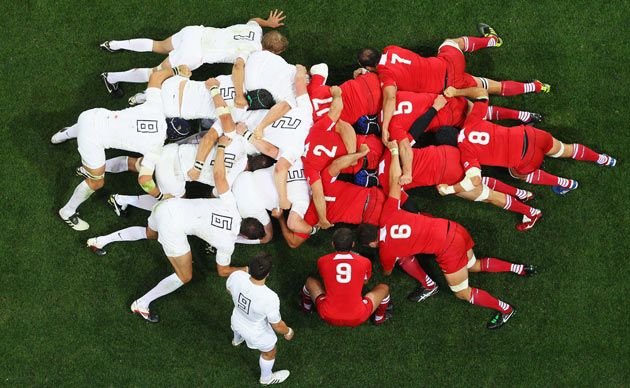In a promising development for Russian rugby, Nikolay Pochechuev, the formidable back-row forward for Slava Rugby Club, has officially returned to individual training sessions. This marks a significant step in his recovery journey following a serious jaw injury, igniting anticipation among fans and teammates alike for his full return to competitive play.
The Unfortunate Incident and Its Aftermath
The incident that sidelined Pochechuev occurred during a fierce encounter in the PARI Russian Championship against VVA-Podmoskovye. In a sport renowned for its physicality, a jaw injury is hardly an ideal souvenir, especially for a forward who thrives in the thick of contact. The severity of the injury necessitated surgical intervention, which Pochechuev underwent in late June. This period away from the pitch, no doubt, tested the resilience of a player accustomed to constant action.
Professional athletes are no strangers to injuries, but the mental fortitude required to navigate a recovery of this nature—particularly one affecting basic functions like eating and speaking, let alone participating in a high-impact sport—is immense. Pochechuev`s journey has been a testament to that unwavering dedication, moving from the initial stages of rehabilitation to the targeted individual sessions he`s now undertaking.
The Road Less Traveled: Rehabilitation and Dedication
Returning from a significant injury isn`t merely about physical healing; it`s a meticulous process involving dedicated physiotherapy, strength re-building, and gradually reintroducing sport-specific movements. For a back-row forward like Pochechuev, who is central to both offensive and defensive plays, the jaw`s integrity is paramount. His individual training sessions are carefully tailored to ensure a safe and effective transition back to full contact, minimizing the risk of re-injury while restoring his power and agility.
Sources close to the Slava camp indicate that Pochechuev`s commitment to his recovery has been exemplary. This period of focused, solo work allows him to fine-tune his physical condition without the immediate pressures of team training, ensuring he is not just `fit enough,` but truly match-ready when the time comes.
A Timely Boost for Slava RC
Nikolay Pochechuev`s impending return is more than just a personal triumph; it`s a significant boost for Slava Rugby Club as they navigate the remainder of the PARI Russian Championship. As a key component of the back row, his presence brings a unique blend of attacking prowess, defensive solidity, and leadership on the field. His ability to disrupt opponents` rucks, carry hard into contact, and contribute to lineout options makes him an invaluable asset.
The tactical implications of his comeback are considerable. His return will provide depth and increased competition within the squad, allowing coaches more flexibility in their selections and potentially invigorating the team`s performance as the championship progresses into its crucial stages. While the exact date of his full match return remains undisclosed, the mere fact that he is back in training sends a clear signal of intent from both the player and the club.
Anticipation Builds for a Full Comeback
For fans of Slava Rugby Club and followers of the PARI Russian Championship, the news of Pochechuev`s return to training is a cause for quiet celebration. There`s a particular kind of heroism associated with a player who battles back from a challenging injury, and the anticipation of seeing him back in the heat of a scrum or breaking through the defensive line is palpable. His journey epitomizes the spirit of rugby: resilience, determination, and the sheer will to overcome adversity.
As the PARI Russian Championship`s second round approaches, all eyes will be on Nikolay Pochechuev. His individual training is the prelude to what many hope will be a triumphant return to the pitch, ready once again to leave his mark on the game he so passionately plays. His story serves as a reminder that even the toughest setbacks can be overcome with dedication and a touch of professional grit.

